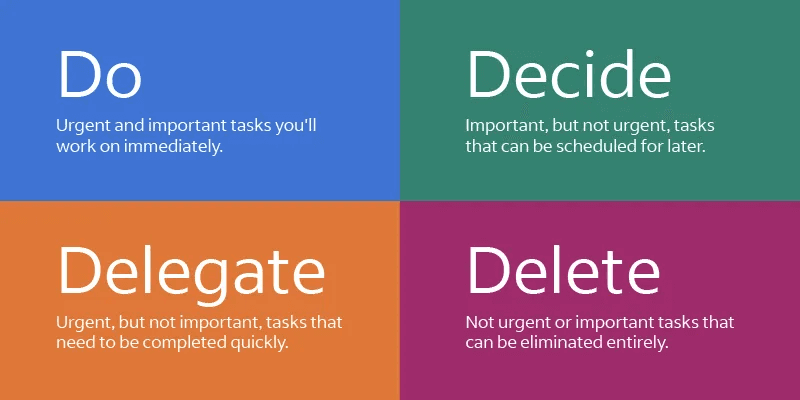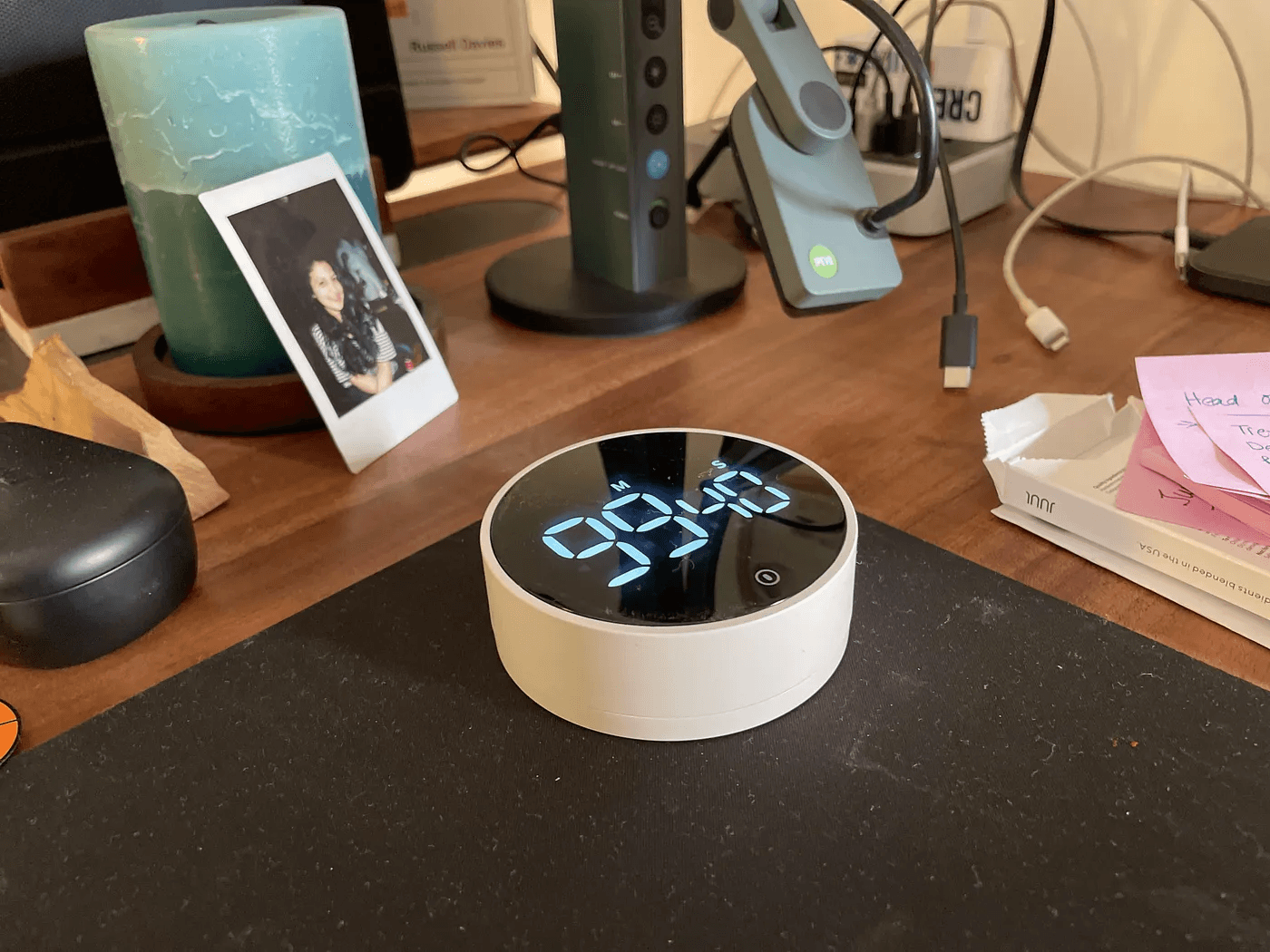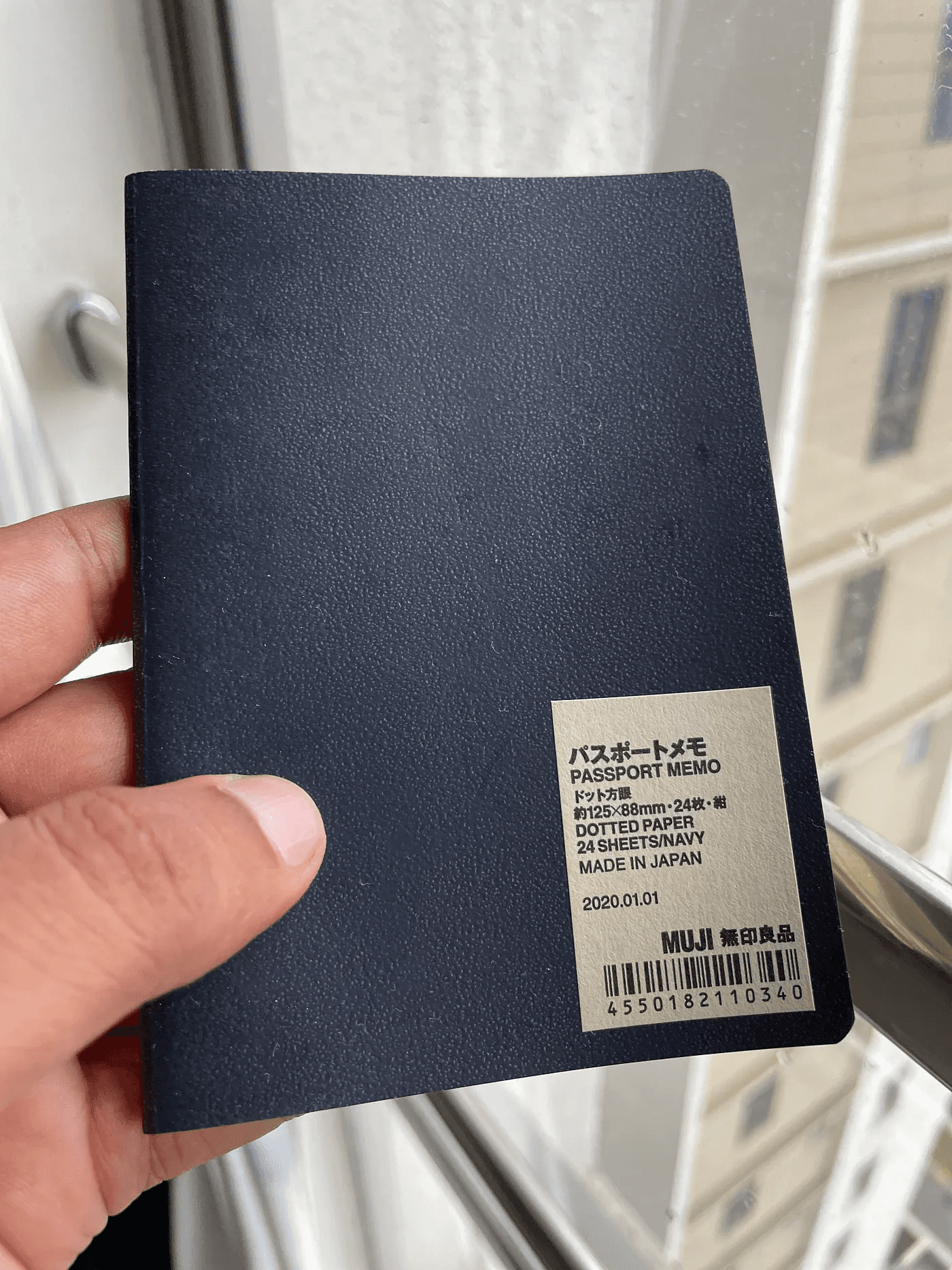04/05/22
1. Prioritise using the Eisenhower
The Eisenhower Matrix is the most straightforward framework to write to-dos. However, I’ve tweaked it (slightly) for my way of working.
If a task is important AND urgent = I do it immediately.
If a task is important BUT NOT urgent = I schedule it on my calendar.
I apply one more layer before actioning on the above two — apply Pareto Principle (in the next point).
If a task is NOT important BUT urgent = I delegate it or do it myself if there’s no one to delegate it to.
If a task is NEITHER important NOR urgent = I keep it noted at the back of a notebook.

2. Prioritise even further with Pareto Principle
Pareto Principle states that 80% of consequences come from 20% of causes. The ways I use it are:
Which 20% of my efforts (time) in the “Do” and “Schedule” will give me 80% of the outcome
Which 20% of the tasks in the “Do” and “Schedule” require 80% of my energy
Simply put, Eisenhower Matrix gives me a filtered checklist. Pareto Principle gives me an ordered priority list within that checklist.
3. Time-box tasks by energy required
For years I had time-boxed tasks on my calendar basis the tentative time the task would require. More often than not, I didn’t feel like doing the task when it was time.
I forgot where I picked the concept but adding a simple “Energy required” lens to all tasks changed the game.
Paying bills = Low energy task
Reading a meeting pre-read = Medium energy task
Recording a loom = Medium energy task
Writing a blog = High energy task
Writing content = High energy task
Designing a few screens = High energy task
Researching on a topic = High energy task
I started putting the tasks on my calendar when my energy would be high or low. I’d put high energy tasks either at the start of the day or late at night when my energy levels are higher.
Energy level against every task is a critical ingredient in my productivity recipe.
4. Execute with a visible Pomodoro timer
The 25-minute bursts are hugely beneficial to block time mentally. I often skip the 5-minute breaks if I’m in the zone. On a good day, I clock close to 3–4 productive hours of execution.
I typically use this to complete chunks of smaller tasks in one go or high-energy tasks requiring 2+ hours of deep work.
I use a physical dial kitchen timer (link here) or a Time Timer that I keep beside my laptop. At work, I use this beautiful app, Emphasis on iOS.

5. Capture with handy notebooks
My laptop/ monitor windows are just work applications — Figma, Browser, Slack, etc. Naturally, anything else — a to-do list, timers, etc.- is not in view and gets ignored heavily. This is why I never got to use the Reminder app, Notion checklist and such for tasks.
Instead, I use the humble physical notebook. I mainly use the Muji Passport Memo, which fits in every pocket and is always on me. I use it to make checklists, doodle, wireframe and make notes.

TL;DR
Eisenhower Matrix to create filtered task list
Pareto Principle to create ordered, prioritised checklist
Time-box by energy required for each task
Pomodoro Technique to do deep work
A portable physical notebook to capture all of above
Hope this helps.
Other posts in
Templates
11/01/24
28/03/23
